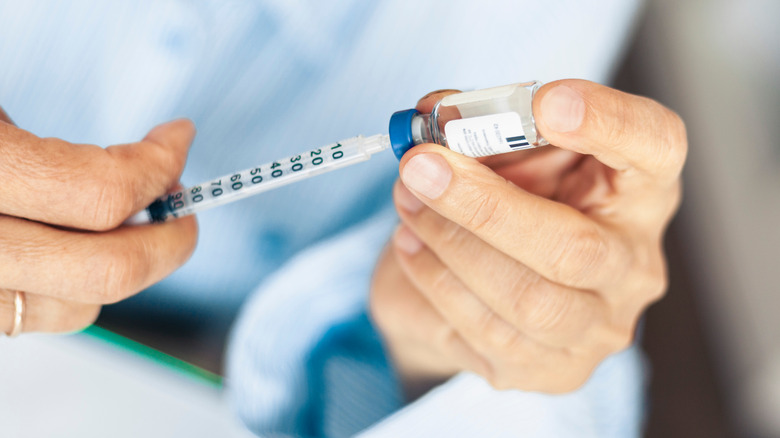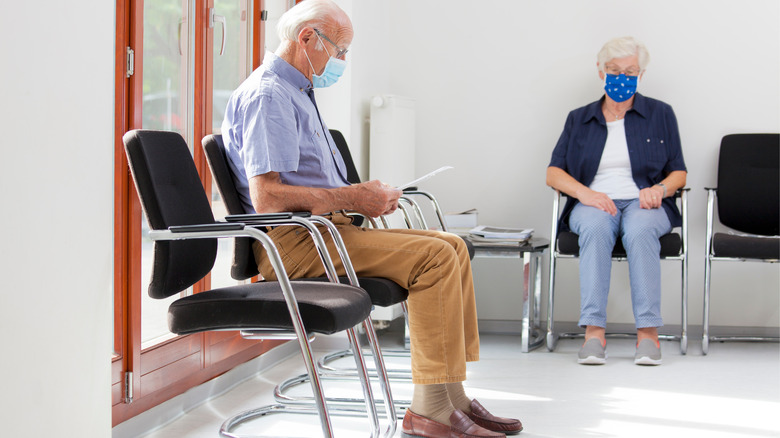Study Reveals COVID-19 May Lead To Temporary Diabetes For Certain Patients
Diabetes is a health condition in which the body can't effectively make or use insulin, according to the U.S. Centers for Disease Control and Prevention (CDC). Affecting 37.3 million adults in the United States, this condition can lead to more severe health issues, including vision problems, heart disease, and kidney disease. According to the CDC, one in five people are unaware that they have diabetes and are undiagnosed. Now, a 2022 study published in the Journal of Diabetes and its Complications finds that diabetes may be triggered as a result of a COVID-19 infection.
Lead author Dr. Sara Cromer, an investigator at Massachusetts General Hospital in Boston, states via HealthDay, "We believe that the inflammatory stress caused by COVID-19 may be a leading contributor to 'new-onset' or newly diagnosed diabetes." It's important to note that for some, a new diabetes diagnosis may not be the direct effect of a COVID-19 infection. Instead, it may be the result of having undiagnosed diabetes prior to a COVID-19 infection and discovering the condition while seeking medical treatment for the virus.
New-onset diabetes appears temporary in most COVID-19 patients
The 2022 study published in the Journal of Diabetes and its Complications examined 1,902 patients hospitalized for COVID-19 between March and September 2020. Of the total hospitalized patients, 594 had diabetes (13% of which had never been previously diagnosed with the condition). Interestingly, these newly diagnosed diabetes patients were associated with longer hospitalizations and were more likely to be admitted to intensive care units.
Dr. Sara Cromer comments on the significance of these findings as it relates to new-onset diabetes, telling HealthDay, "Our study showed these individuals had higher inflammatory markers and more frequently required admission to hospital ICUs than COVID-19 patients with pre-existing diabetes." Cases of newly diagnosed diabetes were found predominantly amongst younger, non-white individuals and those facing healthcare barriers such as a lack of medical insurance.
However, study findings also revealed that the inflammatory response triggering new-onset diabetes appears to be temporary for many patients. 40% of new-onset diabetes patients had blood sugar levels that returned to baseline about a year after being discharged from the hospital (per Reuters). Less than 10% required the use of insulin beyond one year (via HealthDay). Dr. Cromer adds, "These patients may only need insulin or other medications for a short time, and it's therefore critical that physicians closely follow them to see if and when their conditions improve."


